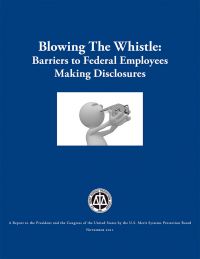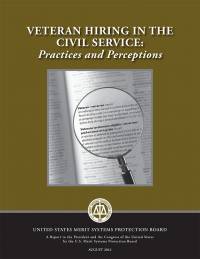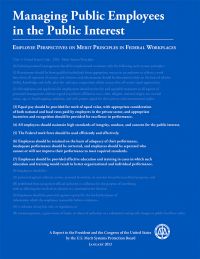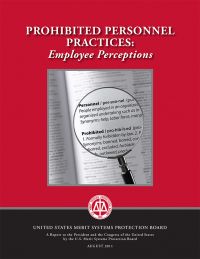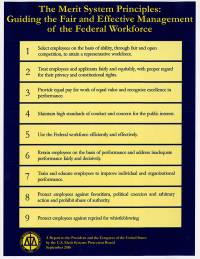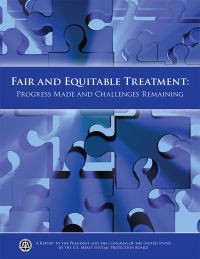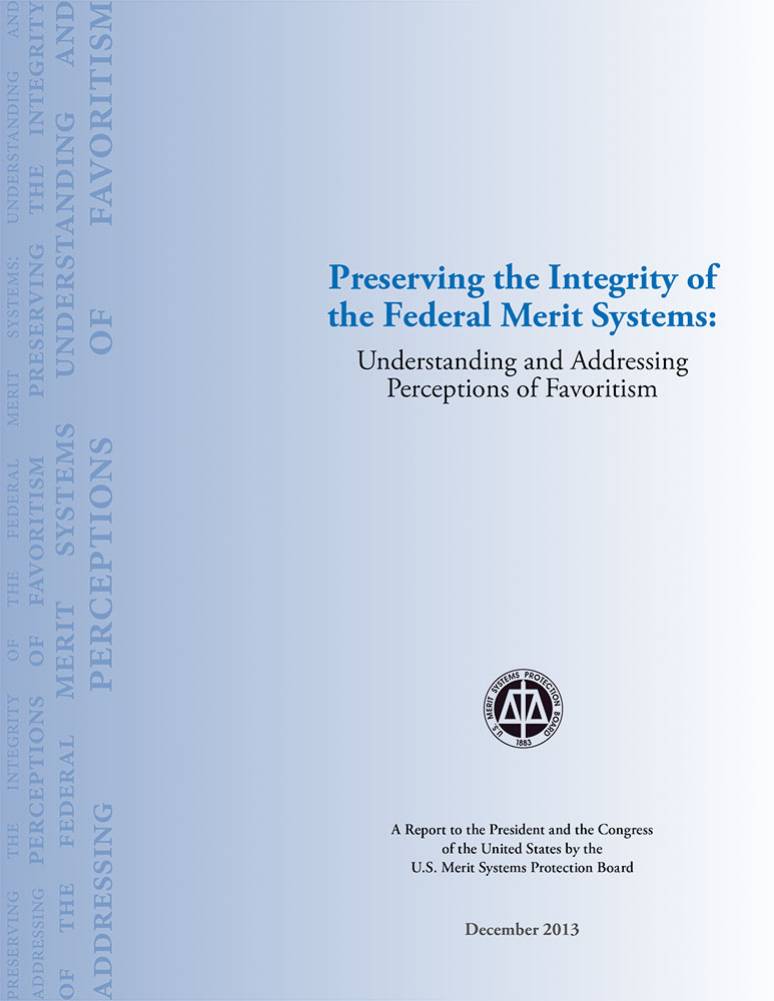
This report summarizes the findings of MSPB's research into employee perspectives regarding how prevalent they believe that favoritism is within the Federal merit systems, how and when favoritism occurs, and the potential impacts on individuals and organizations. Further, this report examines potential reasons underlying perceptions of favoritism and outlines steps that Federal agency leaders and supervisors can take to ensure that decisions are merit-based and untainted by personal favoritism and discusses what Federal employees can do to help them successfully compete for advancement and recognition in a merit system.
Executive Summary i
Overview i
Findings ii
Recommendations iii
Introduction 1
Background 1
Method 3
Purpose 4
Federal Employee Perceptions of Favoritism and Nepotism 7
How Prevalent Are Perceptions of Favoritism and Nepotism? 7
How Do Employees Perceive That They Are Affected by Favoritism? 10
What Supervisory Actions Do Employees Perceive as Evidencing Favoritism? 10
What Factors Influence Promotion Decisions (And Are They Fair)? 17
Comparing Perceptions of Appropriate and Actual Selection Criteria 17
Cautions Regarding Selection Criteria 20
Possible Manifestations of Favoritism in the Selection Process 23
Perspective from Federal Employees 23
Perspective from Human Resources Management Employees 24
Selected Cases Involving Issues Related to Favoritism 26
Potential Explanations for Perceptions of Favoritism 31
Intentional Favoritism: The Influence of Relationships over Merit 32
Unintentional Favoritism 34
Professional Relationships That Do Not Conflict with the Merit System Principles 35
Assessing Adherence to the Merit System Principles and Taking Appropriate Action 36
The Critical Role of Supervisors in the Federal Merit Systems 41
Supervisors’ Responsibilities to Mission and Staff 41
Supervisory Behaviors and Perceptions of Favoritism 42
Consequences of Employee Perceptions of Favoritism 49
Conclusions and Recommendations 55
Why Agencies Should Be Concerned about Perceptions of Favoritism 55
Prevalence of Perceptions of Favoritism in the Federal Workplace 55
Role of Supervisors 56
Recommendations 57
Appendix A: Merit System Principles 59
Appendix B: Prohibited Personnel Practices 61
Appendix C: Federal Merit Systems Survey Methodology 63
Appendix D: Federal Merit Systems Survey Email Request 65
Appendix E: Federal Merit Systems Survey 67
Appendix F: Seeking Redress for Favoritism from the Office of Special Counsel 87
Appendix G: Correlations Between Perceptions of the Supervisor’s Behavior and Perceptions of Favoritism 89
Appendix H: Correlations Between Perceived Favoritism and Aspects of Employee Engagement 91
Federal employees, their supervisors, agency management, union personnel, especially Human Capital officers and employees across the U.S. Federal Government may be interested in this report. Additionally, members of Congress, and Federal managers within the Office of Management and Budget, and Office of Personnel Management that is responsible for policy making authority may find this guide helpful as a reference with human resources and civil service matters. Additionally, students pursuing research for courses within these fields, especially public administration, human resources, employment law, organizational development, and industrial-organizational psychology may find this primary source document that deals with civil service issues helpful for assignments.


